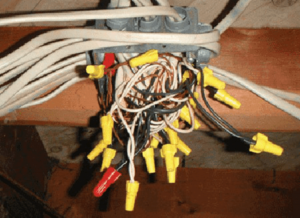Ok, so buyers don’t ‘have to’ be present during an inspection, but I think it’s really important to make time for it. Inspections are long; A typical single-family home inspection can take anywhere from two to four hours depending on the size or complexity of the home. I’ve found that most of them seem to average about two-and-a-half hours. It can be hard for buyers to take time off and be there for so long, but here’s some advantages to being present:
You Can Ask Questions
Many buyers don’t know much about homes and when you’re walking around with an inspector, you can easily ask about what the inspector means when they mention certain items or systems in the home. Perhaps you don’t know much about a furnace or hot water heating. Perhaps you’re curious to know how long cast iron drains last. Maybe you’re wondering why one room in the basement has no insulation or how long the roof might be expected to last. These are questions you might not think to ask if you were just reading a report about the house at home.

You Get a Chance To Get To Know The Home
When you’re shopping for houses, you’re often in and out pretty quick. And you may not get a chance to really look through the home in detail even if it’s the place you end up putting an offer in on. Going to the inspection lets you check out the home in more detail to really understand what you’re buying. You might be surprised to find that the kitchen doesn’t have as much storage as you remembered or that the ceilings are actually nine feet and not eight. Perhaps you find out that your truck won’t fit in the garage. These are not things that your inspector is going to look at, but now you have a chance to really familiarize yourself with the home.
Undertstanding the Inspection Report
Often things on paper can look a lot better or a lot worse than they really are. If you don’t attend your inspection, you may not really understand what ‘repair or replace’ might mean in the report. If you can talk to your home inspector during the inspection, you can actually understand what might constitute a big deal or not. Learning that a home needs a roof can sound pretty scary, but after some questions, you might learn that it could be five years down the road. Learning that insulation is missing in part of the ceiling could sound like no big deal, but a conversation about ice damming and mold growth could follow. Not everything can be put into a report so having your inspector explain each issue can be worth a lot.
If you’re buying a home, I would almost always recommend an inspection. It’s a crucial step in protecting yourself as a buyer – but just having an inspection is not enough – you should also be involved! Remember what you’re buying. It’s not an insignificant thing to own property. It’s best to learn as much as you can about your home before you buy it and keep learning throughout homeownership.

